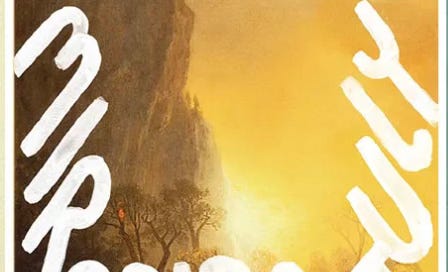At one point while reading Miranda July’s new novel All Fours I experienced a feeling I have not felt in many years: longing, longing for the bright light of pure beauty, of pure aesthetic experience, that kind of gazing on the naked flesh of someone you know will bring you only ruin. It seems there is a phrase for this exact feeling and it is “down bad…
Keep reading with a 7-day free trial
Subscribe to Frump Feelings to keep reading this post and get 7 days of free access to the full post archives.



